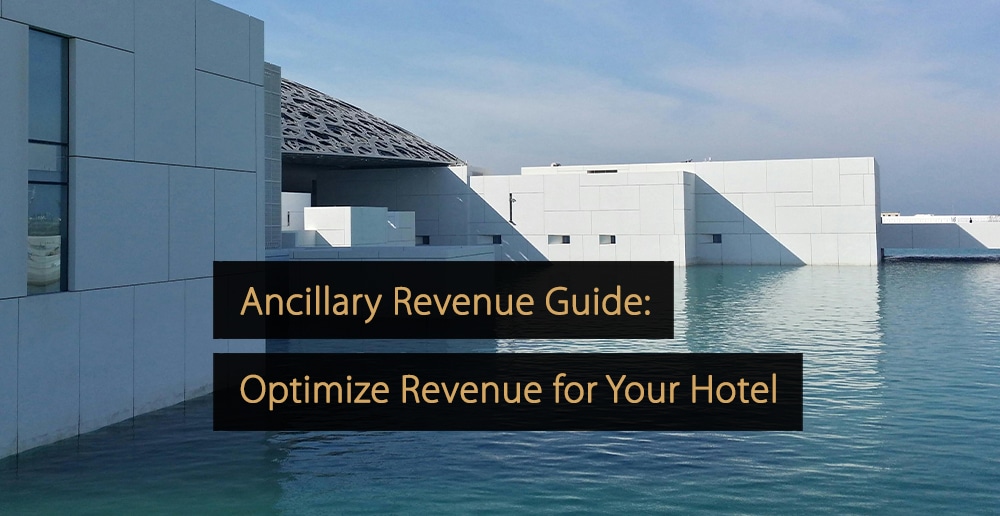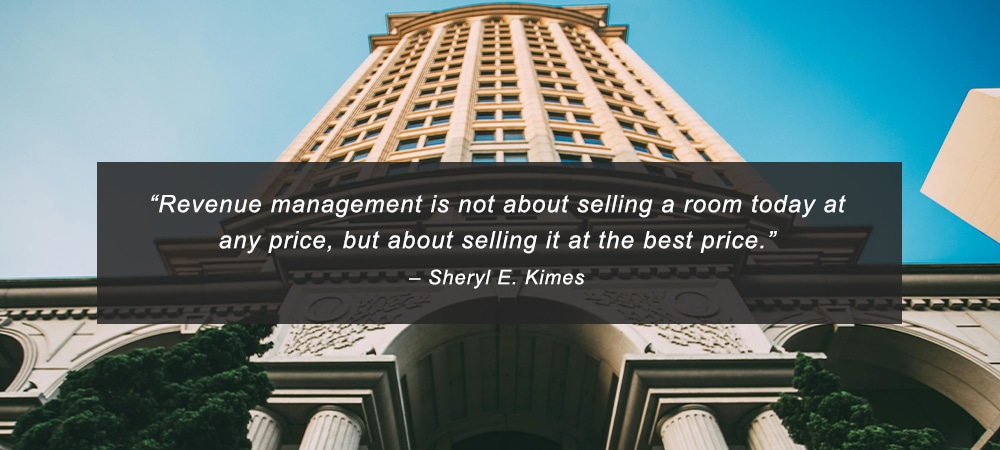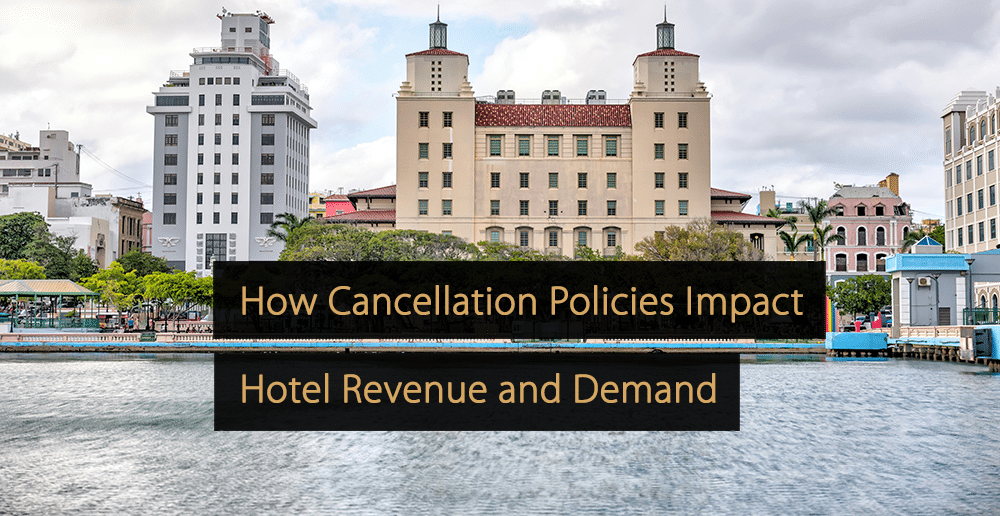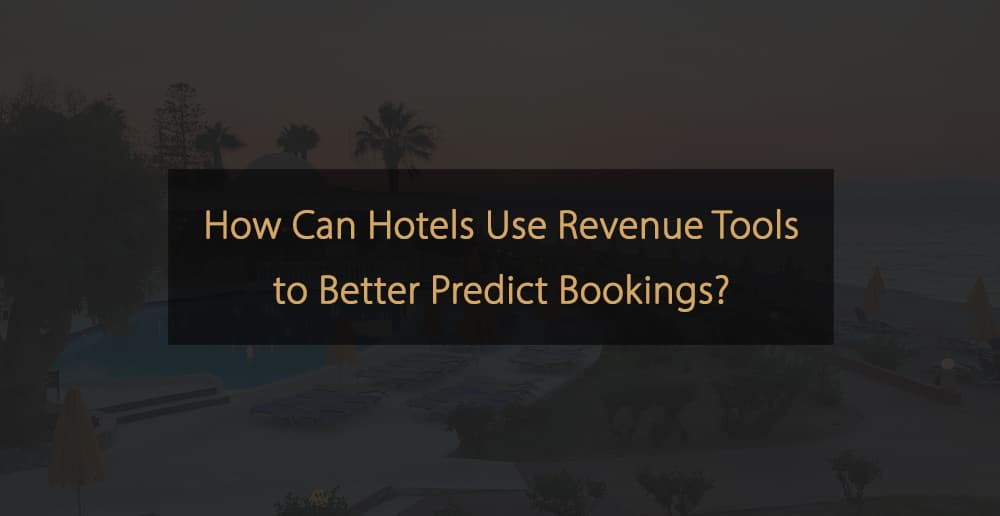Ancillary revenue describes earnings that originate from the sale of products or services besides your primary offering. In the case of hotels, this means products and services beyond the sale of hotel rooms. For hotels, ancillary revenue is important because it provides additional income. When ancillary services are of a high standard, a hotel can extract more revenue from each individual hotel guest. In this article, you can learn all about ancillary revenue and learn how to optimize revenue.
Table of Contents:
- What Is Revenue Management in Hotels
- What Is Ancillary Revenue?
- Why Is Ancillary Revenue Important?
- Benefits of Ancillary Revenue for Hotels
- 6 Examples of Ancillary Revenue Streams
- 4 Ancillary Revenue Strategies & Tips for Hoteliers
- All You Need to Know About Dynamic Pricing
- The Key Hotel Pricing Strategies Explained
What Is Revenue Management in Hotels
Revenue management in the hotel industry is a process that uses data collection, analytics, and forecasting to anticipate future levels of demand. This information is then used to optimize pricing strategies and product availability with the aim of maximizing revenue and profit.
Revenue management can be thought of as the act of selling the right product to the right customer at the right price. It also involves trying to sell products and services for the highest amount customers are willing to pay. Ancillary revenue streams can also play a key role in hotel revenue management, maximizing revenue from each guest. For more information about Hotel Revenue Management, read “What Is Hotel Revenue Management?”
What Is Ancillary Revenue?
Ancillary revenue is a term used to describe sources of revenue outside of the core product or service being sold. For hotels, it describes products or services separate from the standard sale of rooms. Some of the most common examples of ancillary revenue sources include food and beverage services and the sale of room upgrades, parking, and late check-outs. In addition to increasing revenue earning potential for the hotel, many ancillary revenue streams can also enhance the guest experience. For instance, spa services can help guests relax and unwind during their stay, while in-room upgrades can enhance convenience and comfort.
Video: Hotel Ancillary Revenue
Why Is Ancillary Revenue Important?
It allows hotels to maximize the amount of revenue they are able to extract from guests, boosting financial outcomes. At the same time, it also helps to provide guests with additional products and services to enjoy or utilize during their stay. Ancillary revenue sources are among the most essential revenue management strategies used by hoteliers because they help to enhance the quality of the hotel and the guest experience. Ancillary revenue can be especially important for independent or smaller hotels, which often compete with larger chains based on unique features, services, and facilities.
Benefits of Ancillary Revenue for Hotels
There are a variety of benefits associated with establishing ancillary revenue sources in a hotel, including:
- Enhanced Guest Experiences: By establishing ancillary revenue streams through services like tours, room service and spa treatments, hotels can boost guest satisfaction and generate referrals and repeat visits.
- Increased Revenue Streams: Ancillary services provide hotels with extra sources of revenue aside from revenue generated from selling rooms. This ancillary revenue can help to boost overall financial results.
- Greater Average Spend: By introducing ancillary revenue streams, hotels can extract more money from each guest. This increases the average amount of money spent by each customer, making room sales more profitable.
- Improved Occupancy Rates: Ancillary revenue streams provide additional services for guests. These services can help to attract more bookings and boost occupancy levels.
- Competitive Advantage: The services offered by introducing ancillary revenue streams function as a competitive differentiator. If your hotel has services that other hotels do not, guests may choose your hotel.
- Useful, Data-Driven Insights: The various KPI’s hotels can track after introducing new ancillary revenue sources can provide useful information on what guests like and how services and marketing messages can be better tailored.
6 Examples of Ancillary Revenue Streams
In the following sections, you can learn about some of the most common ancillary revenue streams for hotels:
1. Offer Your Guests Room Upgrades
Room upgrades offer optional extras that allow guests to get a little more from their room. Examples include a view of the beach, a larger bed, or a room with a balcony. Upgrades are an important ancillary revenue source for hotels, allowing you to make more money. Sell your best rooms to customers who are willing to pay extra for them. You can also use these rooms as an incentive for guests to make a booking during periods of low demand.
2. Provide On-Site Food and Beverages
Food and beverages is one of the biggest ancillary revenue streams for many hotels. Hotel bars, restaurants, room service and catered events all contribute to this revenue. Food and drink sales are important because these are essential services for guests. When the hotel has good options, guests are less likely to dine out elsewhere. Many hotels boost food and beverage sales by hosting events, including parties and wedding receptions.
3. Sell Your Guests Tours and Activities
Tours and activities are a great source of ancillary revenue, helping guests to enjoy the local area. Hotels can work with tour operators and sell tickets on behalf of nearby attractions. This helps your hotel to generate money from the day-to-day activities guests enjoy. It can also help build beneficial business partnerships. One of the biggest hotel trends to be aware of in this area is the provision of on-site activities, like sports or fitness classes, cooking classes, wine tasting, kids’ clubs, and live music performances.
4. Offer Spa and Wellness Services
Spa and wellness services allow guests to relax, recuperate, and focus on their own health and wellbeing. Spa services include massages and facials, while wellness services include yoga classes or an on-site gym. The focus should be on making guests feel great. This not only serves as an ancillary revenue stream but also boosts customer satisfaction. Spa and wellness services are also an excellent way to differentiate your hotel from others in the area.
5. Host Meetings, Conferences and Business Events
Meetings, conferences, and business events are often held in hotels. By hosting these events regularly, you can increase your ancillary revenue and develop positive relationships. This is a key revenue stream because business meetings are attended by a large number of people. Aside from selling the space, you can also sell food and drinks. Make sure your conference and events rooms are spacious, well-equipped, and easily accessible.
Video: Hotel Meeting & Events
6. Provide Guests With In-Room Amenities
In-room amenities are the little optional extras that can make a difference in a hotel room. Common examples include faster wi-fi, access to movies, and bottles of alcohol from the fridge. These extra sales are valuable to hotels because they quickly add up. It may be worth experimenting with new hotel technology to see what customers will pay for. You may be able to sell everything from scented candles to improved personal care products.
4 Ancillary Revenue Strategies & Tips for Hoteliers
Here, you can access some useful advice on how to get the most from an ancillary revenue strategy:
1. Create an In-House Hotel Gift Shop
An in-house hotel gift shop is a shop operated by your hotel that sells various gifts. For example, you could sell keychains, branded clothing, or gifts associated with local attractions. Guests often want to buy souvenirs for loved ones so they can look back on their trip. Turn this need into an ancillary revenue stream for your hotel. As an added bonus, branded merchandise worn by your guests can help to advertise your hotel.
2. Form Partnerships With Local Businesses
Partnerships with local businesses are a great way to earn ancillary revenue. You might partner with local takeaways, tour operators, restaurants, attractions, or fitness instructors. These kinds of relationships should be mutually beneficial. The other business gains more customers, and you charge a commission fee for sending them their way. Crucially, this can allow you to continue to earn money even when guests are away from your hotel.
3. Try to Bundle Ancillary Services Together
Ancillary service bundles are a great way to maximize earnings. For example, you could sell a Mother’s Day package, which includes a meal, drinks, and spa treatment. Package deals of this kind are a great way to ensure guests pay for multiple additional services. At the same time, the packages can greatly enhance the guest experience. Think of packages to offer for major holidays, events, and key times of the year.
4. Train and Coach Your Staff to Cross-Sell
Cross-selling is the act of selling supplementary products and services to customers. It can be carried out at different stages of the customer journey. Cross-selling is important because effective sales techniques encourage guests to make additional purchases. This allows you to earn ancillary revenue more regularly. It may even be worth seeking outside help from a revenue management agency or hiring an interim revenue manager. These experts can then work with staff to develop their skills and teach them the right sales habits.
All You Need to Know About Dynamic Pricing
Ancillary revenue is vital for revenue management in hotels. However, any good revenue management consulting firm will tell you the price of your hotel rooms should be at the very heart of your revenue management efforts. One especially useful strategy here is dynamic pricing, which is where prices are adjusted based on market realities. In the “Dynamic Pricing: Benefits & Tips for Hoteliers to Increase Revenue” article, you can learn about the advantages of adopting a dynamic pricing strategy and access tips for effective implementation.
The Key Hotel Pricing Strategies Explained
Revenue management is all about increasing revenue, and while ancillary revenue has a major role to play, you also need to get your core pricing strategy right. From rate parity to a length of stay strategy, there are a variety of options to suit different circumstances and market conditions. In the “Pricing Strategies Increase Your Hotel Revenue” article, you can learn about the most significant pricing strategies used by those in hotel management and gain an understanding of how they can help.
Ancillary revenue helps hotels to set themselves apart from rivals, attract more bookings, boost guest satisfaction and increase the average spend from each guest. It is a crucial part of a modern revenue management strategy and with the right approach, can help to make your business much more profitable.
Did You Like This Article About Ancillary Revenue in Hotels?
You might also be interested in the following articles:
- Revenue Management vs Yield Management
- Reasons You Can Benefit From a Freelancer Revenue Manager
- Forecasting Tips to Improve Your Revenue Management Strategy
- The Most Used Revenue Management KPIs for Hotels
- STR Report: Introduction Guide for Hoteliers
More Tips to Grow Your Business
Revfine.com is the leading knowledge platform for the hospitality and travel industry. Professionals use our insights, strategies, and actionable tips to get inspired, optimize revenue, innovate processes, and improve customer experience.Explore expert advice on management, marketing, revenue management, operations, software, and technology in our dedicated Hotel, Hospitality, and Travel & Tourism categories.
This article is written by:
Hi, I am Martijn Barten, founder of Revfine.com. With 20 years of experience in the hospitality industry, I specialize in optimizing revenue by combining revenue management with marketing strategies. I have successfully developed, implemented, and managed revenue management and marketing strategies for individual properties and multi-property portfolios.










Leave A Comment